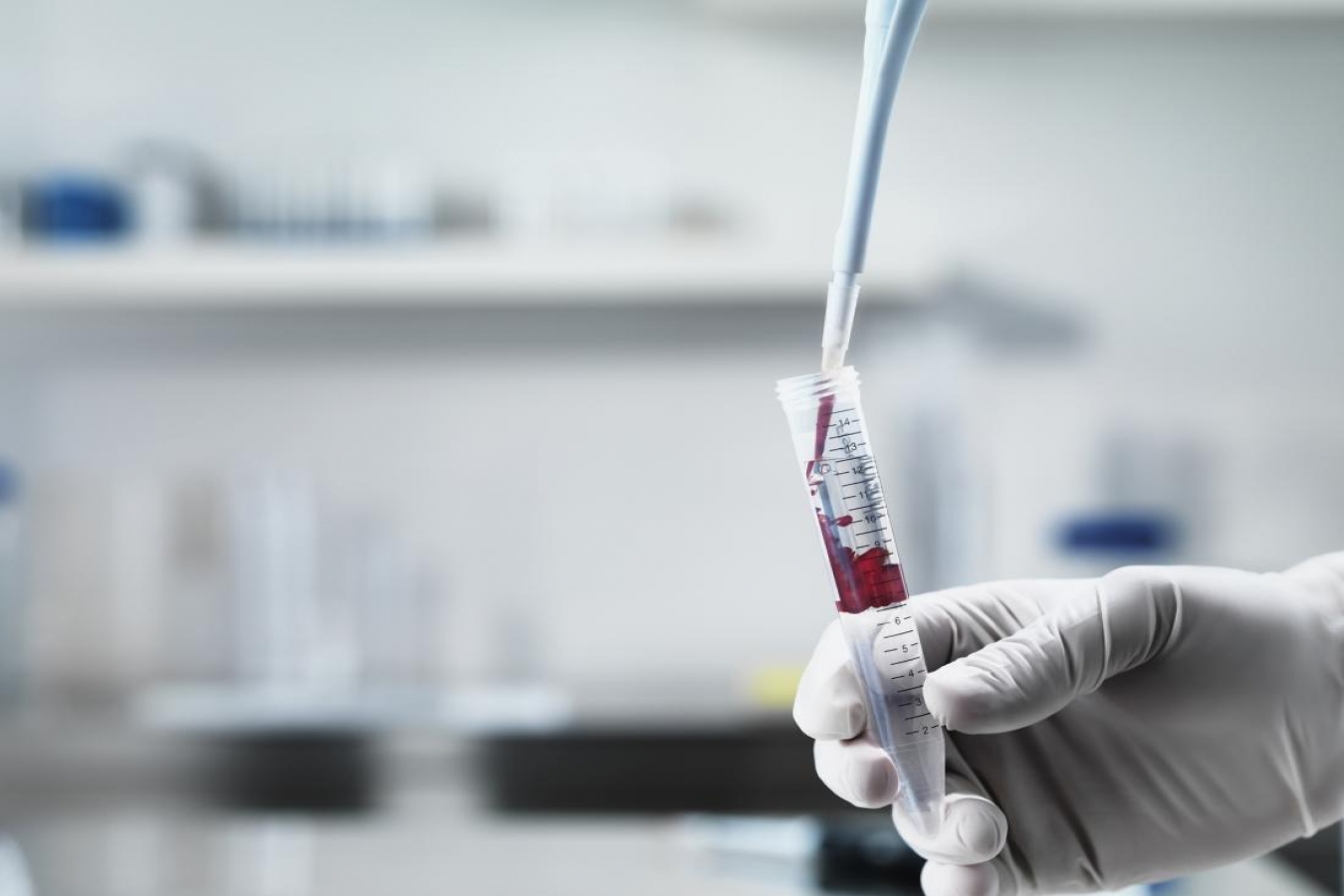


 5:51:47
5:51:47  2019-08-13
2019-08-13  959
959

Scientists have identified biomarkers that could form the basis of the world's first blood test for celiac disease. They discovered that exposure to gluten in people with celiac disease causes a rise in certain inflammatory molecules in the bloodstream that correlates with common symptoms.
The current method for diagnosing celiac disease can take weeks or months. It involves people having to consume gluten and experience the very unpleasant side effects for all of that time. A blood test could cut that time to hours.
The biotechnology firm ImmusanT Inc., of Cambridge, MA, led the international team behind the recent discovery, which features in the journal Science Advances.
"For the first time," says co-senior study author Dr. Robert P. Anderson, Chief Scientific Officer of ImmusanT, "we have described the inflammatory reaction that patients with celiac disease experience in the immediate hours after they are exposed to gluten."
Dr. Anderson suggests that the findings could also lead to methods that help to spot people without celiac disease — but who have similar symptoms — and guide them to more suitable treatments.
Celiac disease is a lifelong condition that affects around 1% of people in Western countries, according to figures from the World Gastroenterology Organisation.
Gluten triggers autoimmune attack on gut
People with celiac disease have an adverse immune reaction to gluten, a protein that is present in wheat, rye, barley, and foods that contain them, such as pasta and bread.
The presence of gluten in the gut causes the immune system to attack the small intestine. The attack damages the digestive system and reduces its ability to absorb nutrients, causing a range of symptoms.
The symptoms of celiac disease include bloating, diarrhea, vomiting, the presence of too much fat in the stools (steatorrhea), anemia due to iron deficiency, and weight loss. In children, it can also result in failure to thrive.
People with celiac disease have to follow a gluten free diet for the rest of their lives.
Experts suggest that the number of people with diagnosed celiac disease does not reflect the true prevalence of the condition. They believe that many more people remain undiagnosed.
'Increase in inflammatory molecules'
Dr. Anderson and his colleagues discovered that injecting gluten peptides into people with celiac disease led to symptoms, such as nausea and vomiting, as well as higher levels of certain immune system molecules. Peptides are short chains of amino acids.
"The unpleasant symptoms associated with the disease are linked to an increase in inflammatory molecules in the bloodstream, such as interleukin-2 (IL-2), produced by T cells of the immune system," he explains.
"This response is similar to what happens when an infection is present; however, for people with coeliac disease, gluten is the trigger," he adds.
Scientists at ImmusanT identified the inflammatory molecules while running a trial of a potential celiac treatment. They saw how the injection of gluten peptides led to symptoms that correlated with raised levels of the blood markers.
In further tests, the researchers also showed that when people with celiac disease consumed gluten, they experienced the same rise in IL-2.
Work on using the findings to develop a simple blood test for celiac disease is already underway, says study author Dr. Jason A. Tye-Din, an associate professor and head of celiac research at the Walter and Eliza Hall Institute in Australia.
Dr. Tye-Din, who is also a gastroenterologist at The Royal Melbourne Hospital, adds that "[f]or the many people following a gluten free diet without a formal diagnosis of celiac disease, all that might be required is a blood test before, and 4 hours after, a small meal of gluten."
"This would be a dramatic improvement on the current approach, which requires people to actively consume gluten for at least several weeks before undergoing an invasive procedure to sample the small intestine." Dr. Jason A. Tye-Din
Source: Medical News Today
Reality Of Islam |
|

For years,

New scienti

This is the

A computer
 9:3:43
9:3:43
 2018-11-05
2018-11-05
10 benefits of Marriage in Islam
 7:5:22
7:5:22
 2019-04-08
2019-04-08
benefits of reciting surat yunus, hud &
 9:45:7
9:45:7
 2018-12-24
2018-12-24
advantages & disadvantages of divorce
 11:35:12
11:35:12
 2018-06-10
2018-06-10
 6:0:51
6:0:51
 2018-10-16
2018-10-16
 2:13:43
2:13:43
 2022-05-27
2022-05-27
 6:14:17
6:14:17
 2018-06-21
2018-06-21
 1:38:41
1:38:41
 2021-12-08
2021-12-08
 11:34:48
11:34:48
 2022-06-29
2022-06-29
 12:47:1
12:47:1
 2022-12-20
2022-12-20
 2:34:48
2:34:48
 2022-01-18
2022-01-18
 7:59:14
7:59:14
 2018-06-21
2018-06-21
 5:41:46
5:41:46
 2023-03-18
2023-03-18
| LATEST |